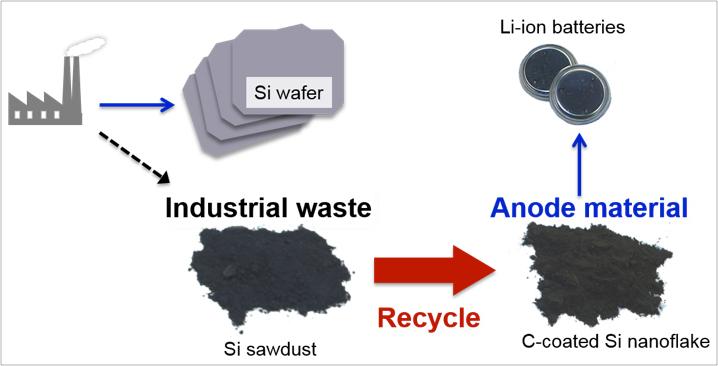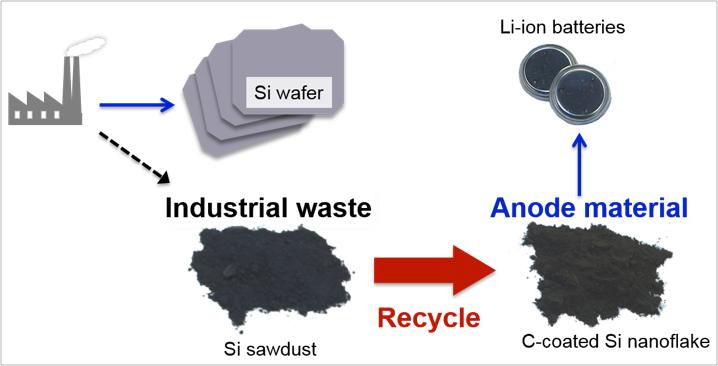
Credit: Hirotomo Nishihara
Researchers have created a high performance anode material for lithium-ion batteries (LIBs) using waste silicon (Si) sawdust.
It is energy-consuming and expensive to produce Si wafers with high purity (> 99.99%). On top of that, some 50% of Si is actually discarded as industrial waste in the final cutting process. This waste is about 90 thousand tons a year worldwide, an amount large enough to meet the global demands for anode materials for LIBs.
To make this happen, under the project of "Dynamic Alliance for Open Innovation Bridging Human, Environment and Materials," a joint research team from Tohoku University and Osaka University has developed a practical and mass-producible method of recycling the unwanted Si sawdust into a high-performance anode material for LIBs.
The team found that the pulverization of the Si sawdust into Si nanoflakes (~16 nm in thickness) and the subsequent carbon coating are effective in fabricating high capacity and durable LIBs. So far, a test half-cell has achieved a constant capacity of 1200 mAh/g over 800 cycles. This capacity is 3.3 times as large as that of conventional graphite (ca. 360 mAh/g).
The proposed method of material recycling is applicable for the mass production of high-performance LIB anode materials at a reasonably low cost. The research team expects that it will have great practical use in the battery industry.
###
Media Contact
Takashi Kyotani
[email protected]
81-222-175-625
@TohokuUniPR
http://www.tohoku.ac.jp/en/
############
Story Source: Materials provided by Scienmag





